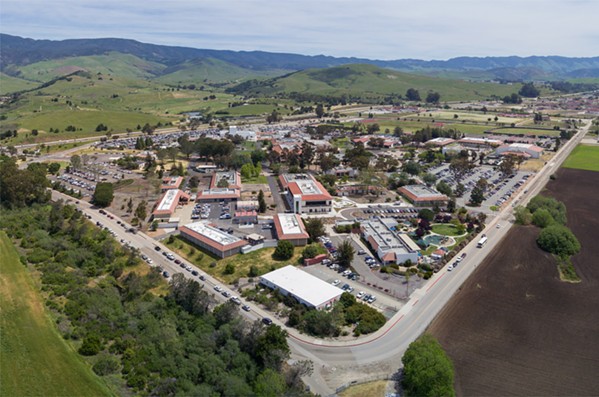Parking fees at Cuesta College will start increasing in the fall 2019 semester to help fund the school's Public Safety Department.
Cuesta's board of trustees unanimously voted on June 5 to bump up the cost of student and staff parking fees for two years starting this fall. The current fee for a student permit is $30 per semester, which will increase to $35 in 2019 and to $40 in 2020. Staff parking fees will go from $10 to $15 per semester in 2019, and a price increase for the following year has yet to be negotiated. Daily parking permits are $2, but will cost $3 in 2019 and $4 the following year. Low-income students—those eligible for state fee waivers—won't see an increase.

- Photo Courtesy Of Cuesta College
- CAMPUS PARKING Incoming Fall 2019 semester Cuesta College students will see an uptick in parking permit fees.
Dan Troy, Cuesta's assistant superintendent, said the board of trustees expressed significant concern over the prospect of raising fees for students but understood the need to ensure adequate funding for parking maintenance and public safety services on campus.
"While the board approved the plan, some of the trustees noted reluctance to consider additional increases in the future," Troy said.
The funds that come from the increases will go directly to the Department of Public Safety, which supports parking and public safety services. Troy said the funds will also go toward safety personnel who monitor and maintain the lots and oversee campus safety as well as training to make sure the Peace Officer Standards and Training (POST) certified officers are up to date with requirements and best practices to ensure that Cuesta is a safe learning working environment.
According to a staff report, 25 percent of the department's revenue comes from the college's general fund. The remaining 75 percent dependent on restricted fund revenue, which is divided between parking permit sales and parking citation enforcement, with parking permits totaling up to about five-sixths of that revenue.
The restricted parking fund has steadily declined, Troy said, due to a growing number of students who are enrolled but don't physically come to campus, such as those in a high school dual enrollment program, distance education program, or who are incarcerated. The resulting revenue losses reduced parking permit income by 12 percent over the last four fiscal years. Δ
Comments